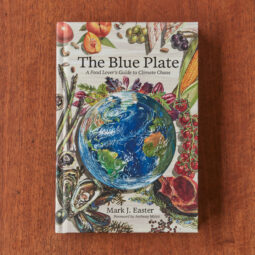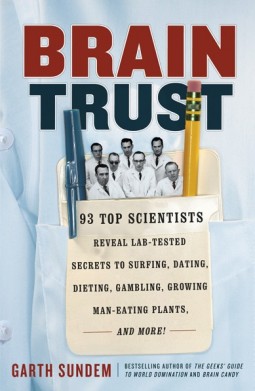 The Blue Plate in a Red-hot World (start time: 7:46) While adding cream to your morning cup of coffee, or digesting the hamburger that you grilled last night, you might not have been asking yourself, What’s the carbon footprint of these ingredients and meals? Understandable. Our guest today, ecologist Mark Easter, however, has pondered this question intensely for many years, when he grocery shops, plans his next meal, and researches. Easter is a so-called greenhouse gas accountant, one who measures the sources and sinks of GHG emissions from agricultural practices.
The Blue Plate in a Red-hot World (start time: 7:46) While adding cream to your morning cup of coffee, or digesting the hamburger that you grilled last night, you might not have been asking yourself, What’s the carbon footprint of these ingredients and meals? Understandable. Our guest today, ecologist Mark Easter, however, has pondered this question intensely for many years, when he grocery shops, plans his next meal, and researches. Easter is a so-called greenhouse gas accountant, one who measures the sources and sinks of GHG emissions from agricultural practices.
It’s a vexing and critical calculus. After all, agriculture generates more than 10 percent of U.S. greenhouse gas emissions. Easter’s debut book, The Blue Plate: A Food Lover’s Guide to Climate Chaos (Patagonia), has just been published. It highlights not just the causes of our climate crisis, but also a growing number of farmers, ranchers and orchardists who are practicing low-carbon, soil-enhancing methods on their land, and as a result boosting their crop yields and revenues.
Hosts: Susan Moran, Joel Parker
Show Producer/Executive Producer: Susan Moran
Engineer: Joel Parker
Headline contributors: Beth Bennett, Joel Parker, Shelley Schlender
Listen to the show here:
Podcast: Play in new window | Download (Duration: 27:46 — 25.4MB)
Subscribe: RSS




 Brain Trust (starts at 4:23) When you are trying to make a decision about something important or having a disagreement with someone, don’t you sometimes wish you had a scientist with you – a world expert on the topic at hand – to help you out? In fact, it would be great to have dozens of experts in many fields available, sort of your own personal Brain Trust. Well, luckily
Brain Trust (starts at 4:23) When you are trying to make a decision about something important or having a disagreement with someone, don’t you sometimes wish you had a scientist with you – a world expert on the topic at hand – to help you out? In fact, it would be great to have dozens of experts in many fields available, sort of your own personal Brain Trust. Well, luckily  Drought (starts at 15:10) Given all the rain and snow on the Front Range and beyond lately, you’d think that Colorado is emerging from the persistent drought, right? But last year was one of the hottest and driest on record in the state and some regions have yet to recover. Among those who have suffered the most from the persistent drought are farmers and ranchers. In fact, some have sold off cattle and even shuttered their businesses. That said, high prices have boosted profits for some wheat farmers, for instance. To find out just how badly many farmers and ranchers have been hit by the drought, researchers at Colorado State University have been surveying them annually for a while. Host Susan Moran talks with Christopher Goemans, a resource economist in the
Drought (starts at 15:10) Given all the rain and snow on the Front Range and beyond lately, you’d think that Colorado is emerging from the persistent drought, right? But last year was one of the hottest and driest on record in the state and some regions have yet to recover. Among those who have suffered the most from the persistent drought are farmers and ranchers. In fact, some have sold off cattle and even shuttered their businesses. That said, high prices have boosted profits for some wheat farmers, for instance. To find out just how badly many farmers and ranchers have been hit by the drought, researchers at Colorado State University have been surveying them annually for a while. Host Susan Moran talks with Christopher Goemans, a resource economist in the